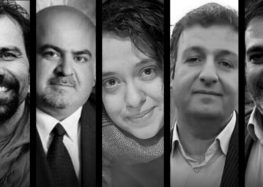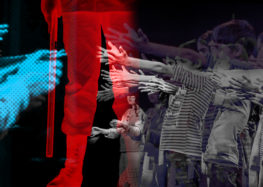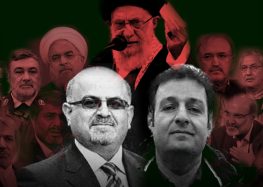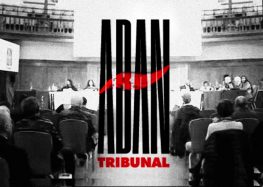Iranian Sunnis Who Supported Rouhani’s Reelection Feel Snubbed by His Cabinet Picks
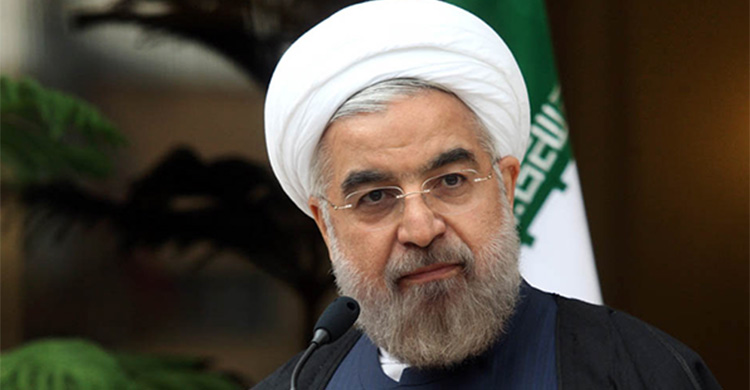
Former MP Urges Rouhani to “Expose” Human Rights Violators
Iran’s Sunni Muslim community is “disappointed” by President Hassan Rouhani’s decision to exclude members of the minority religious group from his cabinet, two former Sunni members of Parliament told the Center for Human Rights in Iran (CHRI).
One MP said Rouhani should “expose” those who oppose the inclusion of Sunnis in high-level governmental positions.
“The truth is that the Sunni community is disappointed,” said Hasel Daseh, a Sunni Kurd who represented the electoral district of Sardasht and Piranshahr in Iran’s 6th Parliamentary session (2000-04).
“The people took part in the election because they trusted Mr. Rouhani and believed in his promises,” he said. “Yet nobody from the Sunni community was invited to the inauguration ceremony and no Sunni was nominated to his cabinet.”
Daseh added that Rouhani, a centrist cleric who during his 2017 reelection campaign promised to uphold the rights of minorities, ultimately submitted to pressure from conservative Shia theologians.
“During the 1979 revolution, all Iranians were united in calling for independence, freedom and an Islamic Republic where everyone could participate,” Jalal Jalalizadeh, a former representative of Sanadaj (2000-04) and current senior member of the Islamic Solidarity Party of Iran, told CHRI. “But I don’t know why some are openly advocating the violation of human rights these days.
“When they don’t allow Sunnis to be ministers or be in charge or have important responsibilities, that means they are denying a quarter of the country’s population,” he said. “We have to expose them as human rights offenders so the world can see who they are.”
Continued Jalalizadeh: “We want Mr. Rouhani to act not as a president, but as the executor of the Constitution and defend the rights of citizens. He must tell the people: who are the individuals who won’t allow him to make the people’s wishes come true? We can’t joke around with public opinion.”
“Forget about appointing Sunnis to the cabinet,” he said. “Expose those who are against equality and justice instead.”
Re-elected on May 19, 2017, Rouhani introduced his ministerial nominees to parliament for approval on August 8. He did not include any Sunnis or women, despite calls from clerics, activists and scholars for him to form a more inclusive cabinet.
More than six million Sunnis supported Rouhani’s re-election in May, according to the leader of Iran’s Sunni population, Molavi Abdolhamid Ismaeelzahi.
Deputy Oil Minister Emad Hosseini was the only Sunni serving in a senior position in Rouhani’s first government (2013-17). Saleh Adibi, Iran’s current ambassador to Vietnam and Cambodia, was the only Sunni in the diplomatic corps at the time.
There are currently 21 Sunni representatives in Iran’s Parliament, up 19 from the previous session (2012-16). However, despite accounting for an estimated 10 percent of the Shia-majority population, no Sunni has served in a ministerial position in the 38 years since the establishment of the Islamic Republic.
“When the country was at war [with Iraq, 1980-88], there were no questions about the fighting ability of Sunnis, Shias or Jews,” Daseh told CHRI. “After all those sacrifices, Sunni families want to know what happened? Why haven’t six million Sunni votes been taken into account in a fair allocation of political power? This will have a very negative impact. I think Mr. Rouhani should make fundamental revisions.”
Daseh added: “Not just Mr. Rouhani, but all other decision-makers should also make fundamental changes or else many [Sunnis] might lose hope in their ability to participate [in the political process]. It’s also possible that other [extremist] political factions in Kurdistan could react negatively.”
“There was a time when we said we can all work together in Iran if there was a fair distribution of wealth and political power, and no discrimination,” he added. “But now these ideas have lost their power. When we talk to officials about these things, they don’t listen.”
Despite being officially recognized in the Constitution, Sunnis experience discrimination throughout Iran, even where there are no legal restrictions against official religious minorities. Their participation in the public sector is restricted and they have been prevented from building mosques in the capital city of Tehran.
Shia Establishment Opposes Sunnis in Government
In his interview with CHRI, Daseh said Rouhani had come under pressure from the ruling Shia establishment in Qom to exclude Sunnis from his cabinet.
“After the elections, I was at a meeting where some officials said senior theologians in Qom had made phone calls [to tell Rouhani] not to give in to Sunni demands,” he said. “I heard this from other reliable sources as well. If this was the case, we find it unacceptable. There’s no moral justification for it.”
“Our officials should take the initiative in being fair and just because justice is one of the pillars of the Shia school of thought,” he added. “But that has not been the case. We preach to other countries about how Iran is so much more democratic than they are, and yet there’s a contradiction between our words and actions.”
Iran’s Constitution guarantees the rights of Sunni Muslim citizens in accordance with their religious practices.
Article 12 states: “Other Islamic [Sunni] schools, including the Hanafi, Shafi’i, Maliki, Hanbali, and Zaydi, are to be accorded full respect, and their followers are free to act in accordance with their own jurisprudence in performing their religious rites.”
When Rouhani was considering a cabinet reshuffle in October 2016 during his first term, parliament’s Sunni block asked him to select Sunnis for ministerial positions as an acknowledgement of the minority’s support during his first election in 2013.
“More than 80 percent of the country’s Sunnis, including Kurds, Turkmens and Baluchis voted for you and your programs that promised the utilization of capable Sunnis in the cabinet and in other key government positions,” they said in a letter to the president on October 25, 2016.
During his 2017 presidential bid, Rouhani pledged “coexistence” and an end to ethnic discrimination.
“We don’t want those who monopolize everything or who just sit behind a desk and issue decrees,” he told supporters at a rally in Hamadan on May 8, 2017. Our path is the path of peaceful coexistence with all ethnicities in the country.”
“On May 19 [election day] we will put an end to the tutelage of minorities,” he said at a rally in Kermanshah on May 9.
In his interview with CHRI, Daseh said Rouhani should take the opportunity to ease tensions between Shia and Sunni Muslims globally by treating Iran’s Sunnis fairly.
“There are 51 Muslim countries whose populations are 80-90 percent Sunni,” he said, adding that selecting Sunnis for ministerial positions “would send a good message to these countries to re-evaluate their diplomatic, political and economic relations with us [Iran].”
“We are in the age of globalization in the 21st century,” he added. “How can you deny minorities from participation? How can you reject millions of ethnic and religious minorities against Shia principles? This situation is not good at all. All the hope and excitement that existed before the election has evaporated.”

